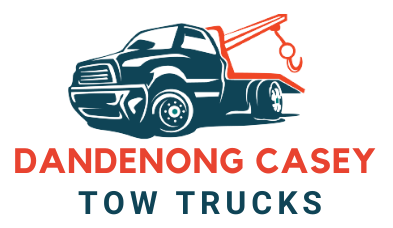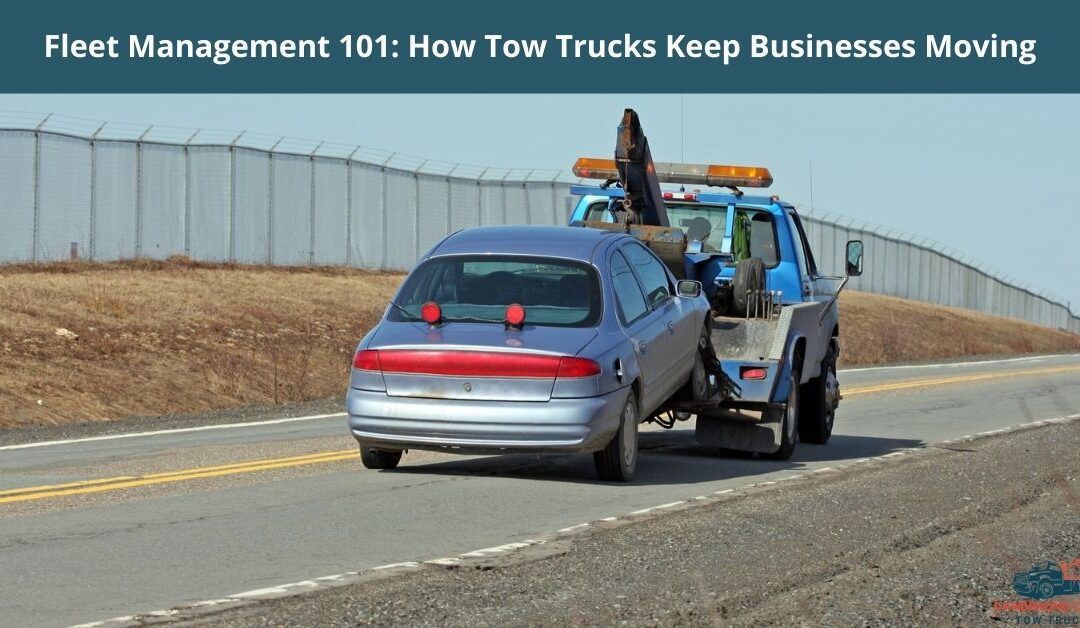For businesses that rely on vehicles for their operations, fleet management is crucial. Whether it’s a delivery service, construction company, or logistics provider, keeping vehicles on the road is essential for maintaining productivity. This is where tow trucks play a vital role, providing quick, efficient recovery and transport solutions to keep businesses moving.
In this article, we’ll explore how tow trucks are integral to fleet management and what businesses can do to ensure their vehicles stay operational and minimize downtime.
1. The Role of Tow Trucks in Fleet Management
Tow trucks are indispensable for any business with a fleet of vehicles. Whether a company has a small group of delivery vans or a large collection of heavy-duty trucks, there are bound to be instances where vehicles break down or get involved in accidents. Tow trucks offer several key services to ensure fleets stay operational:
Vehicle Recovery: Tow trucks can quickly recover vehicles that break down on the road, minimizing disruption to operations.
Accident Assistance: In the event of a collision, towing services remove damaged vehicles from the scene, ensuring road safety and clearing the way for traffic.
Transport of Non-Operational Vehicles: Tow trucks are used to move vehicles that require extensive repairs to the shop, reducing the hassle of figuring out logistics.
Emergency Roadside Assistance: Many towing services also offer roadside help such as jump-starts, tire changes, and fuel delivery, allowing minor issues to be addressed without full towing.
2. Minimizing Downtime with Quick Response Towing
One of the biggest challenges in fleet management is minimizing downtime, as even one vehicle out of commission can lead to delays, lost revenue, or dissatisfied customers. Towing services help reduce downtime in several ways:
Rapid Response: Many professional towing companies offer 24/7 service, ensuring that vehicles can be recovered at any time, day or night. This is critical for businesses operating around the clock, such as logistics and delivery companies.
Multiple Towing Options: Depending on the type of fleet, towing services can offer flatbed towing for low-profile vehicles, wheel-lift towing for lighter vehicles, and heavy-duty towing for large trucks. This variety ensures that no matter the size or type of vehicle, it can be transported efficiently.
On-Site Repairs: In some cases, towing services provide on-site repairs or emergency fixes like battery replacements or tire changes. This keeps minor problems from escalating and allows the vehicle to get back on the road faster.
3. Preventive Maintenance and Towing Services
Tow trucks don’t just respond to emergencies—they can also be part of a proactive fleet management strategy. Regular preventive maintenance can minimize the chances of vehicle breakdowns, but when issues do arise, prompt towing can prevent further damage.
Scheduled Maintenance Transport: When vehicles require scheduled maintenance or repairs that cannot be completed in-house, tow trucks can transport them to the service center without disrupting fleet operations. This is particularly helpful for heavy-duty trucks that might be too large or unsafe to drive in their current condition.
Avoiding Long-Term Damage: Using tow trucks for prompt recovery can prevent further mechanical or body damage. For instance, trying to drive a vehicle with a compromised engine or transmission could lead to more expensive repairs than if it were towed immediately.
4. Heavy-Duty Towing for Industrial Fleets
Businesses that operate industrial fleets—such as construction firms, waste management companies, and logistics providers—often need specialized towing for larger vehicles like dump trucks, garbage trucks, or semi-trailers. Heavy-duty towing services have the necessary equipment and expertise to recover these vehicles safely.
Specialized Equipment: Heavy-duty tow trucks are equipped with powerful winches, hydraulic systems, and reinforced towing mechanisms designed to handle vehicles that weigh thousands of kilograms. This equipment ensures that even the heaviest vehicles can be towed without damage.
Accident Recovery for Large Vehicles: When large fleet vehicles are involved in accidents, professional towing services can manage the recovery safely and efficiently, helping businesses avoid extended downtime and logistical challenges.
5. How to Choose the Right Towing Service for Your Fleet
Selecting the right towing partner is critical for effective fleet management. Businesses should look for towing companies that offer reliable, responsive, and comprehensive services to suit their specific needs. Here are some key factors to consider when choosing a towing service:
Response Time: The faster a tow truck can reach a broken-down vehicle, the sooner that vehicle can be repaired and returned to the fleet. Make sure the towing service operates in your region and offers 24/7 availability.
Fleet-Specific Expertise: Look for towing companies that specialize in commercial or industrial towing, as they will be better equipped to handle the specific needs of business vehicles.
Range of Services: Ideally, the towing service should provide more than just towing. Roadside assistance, accident recovery, and maintenance transport are valuable services that can reduce downtime and keep your fleet running smoothly.
Equipment and Capacity: Ensure that the towing company has the necessary equipment to handle your specific vehicles. If your fleet includes heavy-duty trucks, you’ll need a service that offers heavy-duty towing solutions.
6. Tow Truck Technology and Fleet Management
Technology is transforming the towing industry, providing more efficient and reliable services for businesses that depend on quick recovery times.
GPS Tracking: Many towing companies now use GPS tracking to monitor the location of their trucks and provide real-time updates to clients. This allows fleet managers to know exactly when help will arrive, reducing uncertainty and improving logistical planning.
Digital Invoicing and Reporting: Digital platforms enable quick invoicing and provide detailed reports of the tow service. This streamlines the administrative process for fleet managers, making it easier to track costs and manage budgets.
Vehicle Diagnostics and Data Collection: Some advanced towing services offer vehicle diagnostics as part of their roadside assistance. This data can be used by fleet managers to identify recurring issues and address them proactively, improving overall fleet performance.
7. Emergency Preparedness and Towing Contracts
A smart fleet management strategy includes preparing for the unexpected. Having a towing contract or partnership in place ensures that when a vehicle breakdown or accident occurs, help is just a call away.
Towing Contracts: Establishing a contract with a reliable towing company provides peace of mind for fleet managers. These contracts can include guaranteed response times, discounted rates, and priority service during busy times.
Emergency Protocols: Fleet managers should work with towing companies to establish clear emergency protocols. This ensures that drivers know exactly what to do when they need assistance, reducing confusion and downtime.
Conclusion
Tow trucks are an essential component of effective fleet management, helping businesses reduce downtime, manage vehicle repairs, and maintain operational efficiency. From heavy-duty recovery to quick roadside assistance, towing services ensure that businesses can keep their fleets moving no matter the challenges they face. By choosing the right towing partner and incorporating towing into a proactive maintenance strategy, fleet managers can minimize disruptions and keep their vehicles on the road.
If you are in Dandenong, Victoria 3175, and looking for a car removal service, this is the best way to visit us.
Contact Us
Dandenong Casey Tow Trucks
50 Fitzgerald Road
Hallam VIC 3803
(03) 7042 2011


Recent Comments